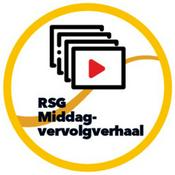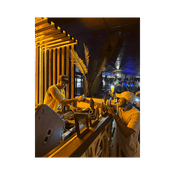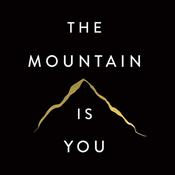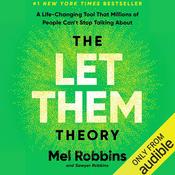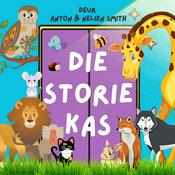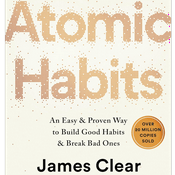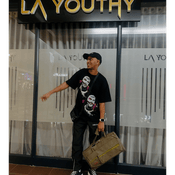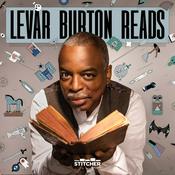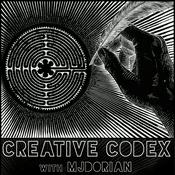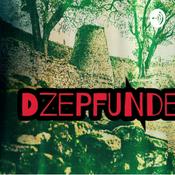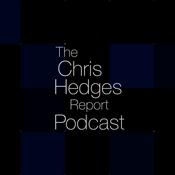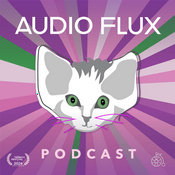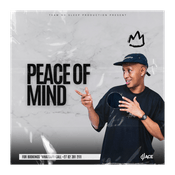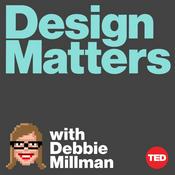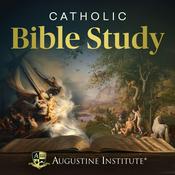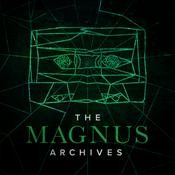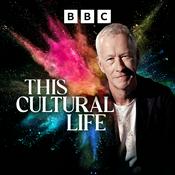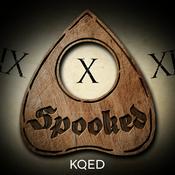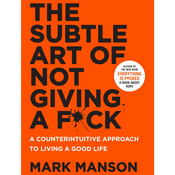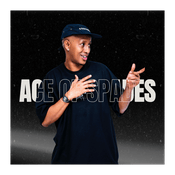45 episodes
- In this episode of EdTechnical, Libby and Owen sit down with Dan Meyer: math educator, EdTech innovator, and self-proclaimed “token AI sceptic”. Dan’s rare mix of classroom experience and product design insight gives him a unique perspective on how technology intersects with real classrooms. He shares what the classroom teaches him about student engagement, the challenges teachers face, and why motivation is deeply social - which EdTech can overlook.
They dig into how AI can support creativity and connection, why great math teaching starts with inviting and developing, and where “AI guy” might be missing the point. Plus, Dan reveals the AI project he’s excited about and what it means for teachers.
Links:
TeacherTapp survey on teacher AI use
EdTechnical’s forecasting competition - deadline 16 December
Bio
Dan Meyer taught secondary maths to students who didn't like secondary maths. He has advocated for better maths instruction on CNN, Good Morning America, Everyday With Rachel Ray, and TED.com. He earned his doctorate from Stanford University in maths education and is the Vice President of Teacher Growth at Amplify where he explores the future of maths, technology, and learning. He has worked with teachers around the world, calls Oakland home, and taught eighth graders there yesterday.
Join us on social media:
BOLD (@BOLD_insights), Libby Hills (@Libbylhhills) and Owen Henkel (@owen_henkel)
Listen to all episodes of Ed-Technical here: https://bold.expert/ed-technical
Subscribe to BOLD’s newsletter: https://bold.expert/newsletter
Stay up to date with all the latest research on child development and learning: https://bold.expert
Credits: Sarah Myles for production support; Josie Hills for graphic design; Anabel Altenburg for content production. - In this episode of EdTechnical, Libby and Owen look at Alpha School, a model that started as a micro-school in Austin, Texas, and is now expanding. At its core, Alpha condenses academic learning into a morning block where students work largely independently using software, supported by guides rather than traditional teachers. Afternoons are reserved for enrichment and life skills.
Libby and Owen discuss the appeal of this approach , the evidence behind mastery-based learning, and the big questions about scalability and cost. Is this a breakthrough for education or just a well-designed version of ideas we’ve seen before? Join them for a brief dive into Alpha School’s model and what it could signal for future learning models.
Links:
Alpha School’s white paper
A parent review of Alpha School
A Wired article about Alpha School
EdTechnical’s forecasting competition
Join us on social media:
BOLD (@BOLD_insights), Libby Hills (@Libbylhhills) and Owen Henkel (@owen_henkel)
Listen to all episodes of Ed-Technical here: https://bold.expert/ed-technical
Subscribe to BOLD’s newsletter: https://bold.expert/newsletter
Stay up to date with all the latest research on child development and learning: https://bold.expert
Credits: Sarah Myles for production support; Josie Hills for graphic design; Anabel Altenburg for content production. - In this episode Libby and Owen are joined by Daisy Christodoulou MBE, EdTechnical’s very first guest from two years ago. Daisy is Director of Education at No More Marking and a leading voice in assessment. Daisy, Owen and Libby reflect over what’s changed in the two years since that first episode, including Daisy’s own views about the opportunities for AI use in assessment. Daisy shares what her team has learned through their recent experiments with AI work, including how falling model costs are unlocking new possibilities, and why human-in-the-loop systems are essential.
Links
EdTechnical website
Making Good Progress?: The future of Assessment for Learning paperback by Daisy Christodoulou
No More Marking
Join us on social media:
BOLD (@BOLD_insights), Libby Hills (@Libbylhhills) and Owen Henkel (@owen_henkel)
Listen to all episodes of Ed-Technical here: https://bold.expert/ed-technical
Subscribe to BOLD’s newsletter: https://bold.expert/newsletter
Stay up to date with all the latest research on child development and learning: https://bold.expert
Credits: Sarah Myles for production support; Josie Hills for graphic design; Anabel Altenburg for content production. - Millions of students now study with AI chatbots. There are growing concerns about what happens when vulnerable teens form emotional bonds with AI. Tragic teen deaths have sparked intense debate about how to protect young people from AI systems that blur the line between tool and companion. California just drew the first regulatory lines—but they're messy and educational AI is caught in the middle. In this short episode, Libby and Owen discuss the trade-off between building guardrails for safety, and achieving ambitious goals.
This matters beyond California: when the state that's home to OpenAI, Google, and Anthropic sets the rules, this has consequences for classrooms everywhere.
Links
SB 243 Text: Companion Chatbots
AB 1064 Veto Message
Join us on social media:
BOLD (@BOLD_insights), Libby Hills (@Libbylhhills) and Owen Henkel (@owen_henkel)
Listen to all episodes of Ed-Technical here: https://bold.expert/ed-technical
Subscribe to BOLD’s newsletter: https://bold.expert/newsletter
Stay up to date with all the latest research on child development and learning: https://bold.expert
Credits: Sarah Myles for production support; Josie Hills for graphic design; Anabel Altenburg for content production. - In this episode of EdTechnical, Libby and Owen speak with Candice Odgers, a psychologist and researcher studying how online experiences influence children's mental health. They revisit the debate around social media and teen wellbeing, questioning the claims that social media use has caused rising rates of depression and anxiety. Candice calls for a more careful reading of the evidence and cautions against rushing into restrictive policies that may have unintended consequences or divert attention from more effective interventions.
Candice also shares early findings from her recent research into AI in education. She finds surprisingly limited use of AI among young people, and mixed perceptions around what counts as cheating, which shapes how these tools are received. Notably, she found no clear socioeconomic divide in AI engagement, raising questions about how these tools might be designed to support more equitable learning. They discuss the challenge of designing rigorous studies in this space and the need for thoughtful, evidence-informed approaches to both social media and AI.
Links:
Adaptlab - Adaptation, Development and Positive Transitions Lab
NYT Article: Panicking About Your Kids’ Phones? New Research Says Don’t
Bio
Candice Odgers is the Associate Dean for Research and Faculty Development and Professor of Psychological Science at the University of California Irvine. She also co-directs the Child & Brain Development Program at the Canadian Institute for Advanced Research and the CERES Network funded by the Jacobs Foundation.
Her team has been capturing the daily lives and health of adolescents using mobile phones and sensors over the past decade. More recently, she has been working to leverage digital technologies to better support the needs of children and adolescents as they come of age in an increasingly unequal and digital world.
Join us on social media:
BOLD (@BOLD_insights), Libby Hills (@Libbylhhills) and Owen Henkel (@owen_henkel)
Listen to all episodes of Ed-Technical here: https://bold.expert/ed-technical
Subscribe to BOLD’s newsletter: https://bold.expert/newsletter
Stay up to date with all the latest research on child development and learning: https://bold.expert
Credits: Sarah Myles for production support; Josie Hills for graphic design; Anabel Altenburg for content production.
More Arts podcasts
Trending Arts podcasts
About EdTechnical
Join two former teachers - Libby Hills from the Jacobs Foundation and AI researcher Owen Henkel - for the EdTechnical podcast series about AI in education. Each episode, Libby and Owen will ask experts to help educators sift the useful insights from the AI hype. They’ll be asking questions like - how does this actually help students and teachers? What do we actually know about this technology, and what’s just speculation? And (importantly!) when we say AI, what are we actually talking about?
Podcast websiteListen to EdTechnical, Middagvervolgverhaal and many other podcasts from around the world with the radio.net app

Get the free radio.net app
- Stations and podcasts to bookmark
- Stream via Wi-Fi or Bluetooth
- Supports Carplay & Android Auto
- Many other app features
Get the free radio.net app
- Stations and podcasts to bookmark
- Stream via Wi-Fi or Bluetooth
- Supports Carplay & Android Auto
- Many other app features


EdTechnical
Scan code,
download the app,
start listening.
download the app,
start listening.

